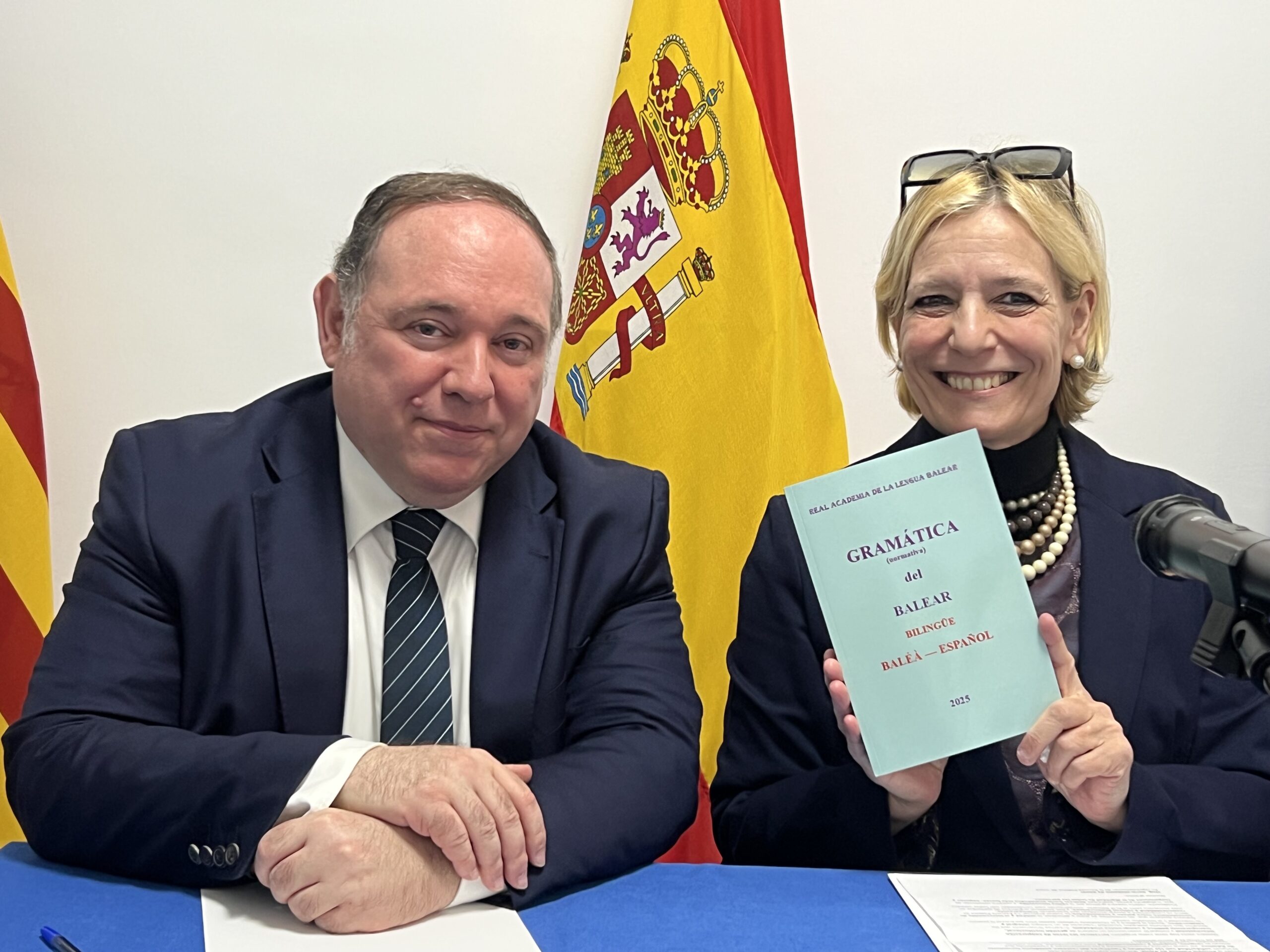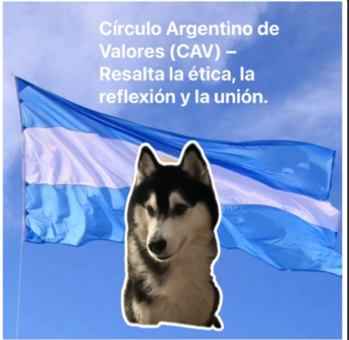
In Englisch kannst du über Handlungen und Ereignisse sprechen, die in der Gegenwart , der Vergangenheit und der Zukunft stattfinden. Alles, was du dazu brauchst, sind die richtigen Zeitformen.
Die 12 englischen Zeitformen sind: Simple Present, Present Progressive, Simple Past, Past Progressive, Present Perfect, Present Perfect Progressive, Past Perfect, Past Perfect Progressive, Will-Future, Going to-Future, Future Progressive, Future Perfect und Future Perfect Progressive.
Alle Zeitformen in Englisch in einer Tabelle:
| Zeitform | Verwendung | Bildung | Beispiele | Signalwörter |
| Simple Present | Gewohnheiten, regelmäßige Handlungen, allgemeine Aussagen, Zustände, Anweisungen | Infinitiv he/she/it + -(e)s | I walk. I don′t walk. | always, every day, often, sometimes, usually, normally, never |
| She walks. She doesn′t walk. | ||||
| Present Progressive | gerade stattfindende Handlungen, vorübergehende Handlungen, feststehende Pläne, (störende) wiederholte Handlungen, Trends | to be + Infinitiv + -ing | I am walking. I′m not walking. | (right) now, just at that moment, this week, today, still |
| Simple Past | abgeschlossene, vergangene Handlungen | Infinitiv + -ed | I walked. I didn′t walk. | yesterday, the other day, last Tuesday, in 2012, a month ago |
| eigene Form bei unregelmäßigen Verben (eat): | I ate. I didn′t eat. | |||
| Past Progressive | Handlungen, die in der Vergangenheit eine Weile angedauert haben | was/were + Infinitiv + -ing | I was walking. I wasn′t walking. | while, as long as |
| Present Perfect | vergangene Handlungen, die eine Bedeutung für die Gegenwart haben | has/have + Infinitiv + -ed (past participle ) | I have walked. I haven′t walked. | up until now, yet, so far, since, ever, recently, lately |
| bei unregelmäßigen Verben (eat): | I have eaten. I haven′t eaten. | |||
| Present Perfect Progressive | Handlungen, die in der Vergangenheit begonnen haben und bis heute andauern | has/have + been + Infinitiv + -ing | I have been walking. I haven′t been walking. | for hours, all afternoon, how long? |
| Past Perfect | Handlungen, die vor einem bestimmten Zeitpunkt in der Vergangenheit abgeschlossen wurden | had + Infinitiv + -ed (past participle ) | I had walked. I hadn′t walked. | before, after, when, as soon as, until that day, once |
| bei unregelmäßigen Verben: | I had eaten. I hadn′t eaten. | |||
| Past Perfect Progressive | Handlungen, die über einen bestimmten Zeitraum hinweg in der Vergangenheit stattgefunden haben | had + been + Infinitiv + -ing | I had been walking. I hadn’t been walking. | since, for, how long? |
| Will-Future (Future Simple) | allgemeine Aussagen über die Zukunft, Vorhersagen, spontane Entscheidungen | will + Infinitiv | I will walk. I won′t walk. | tomorrow, next week, in the summer |
| Going to- Future | feststehender Plan/Absicht für die Zukunft, logische Schlussfolgerung | to be + going to + Infinitiv | I am going to walk. I′m not going to walk. | |
| Future Progressive | Handlungen, die in der Zukunft länger andauern werden | will + be + Infinitiv + -ing | I will be walking. I won′t be walking. | during the summer, while, for several weeks |
| Future Perfect | Handlungen, die in der Zukunft abgeschlossen sein werden | will + have + Infinitiv + -ed (past participle ) | I will have walked. I won′t have walked. | by Tuesday, within a year |
| bei unregelmäßigen Verben: | I will have eaten. I won′t have eaten. | |||
| Future Perfect Progressive | schon begonnene Handlungen oder Ereignisse, die erst zu einem bestimmten zukünftigen Zeitpunkt abgeschlossen sein werden | will + have + been + Infinitiv + -ing | I will have been walking. I won′t have been walking. | by the time that, for the longest time, all day long |

| Tense | Signal words | Use | Form | Examples affirmative | Examples negative | Examples interrogative |
|---|---|---|---|---|---|---|
| Simple Present or Present Simple | every daysometimesalwaysoftenusuallyseldomneverfirst … then | something happens repeatedlyhow often something happensone action follows anotherthings in generalwith the following verbs (to love, to hate, to think, etc.)future meaning: timetables, programmes | infinitive (he/she/it) + -s | I work. | I don’t work. | Do I work? |
| He works. | He doesn’t work. | Does he work? | ||||
| I go. | I don’t go. | Do I go? | ||||
| He goes. | He doesn’t go. | Does he go? | ||||
| Present Progressive or Present Continuous | nowat the momentLook!Listen! | something is happening at the same time of speaking or around itfuture meaning: when you have already decided and arranged to do it (a fixed plan, date) | to be (am/are/is) + infinitive + -ing | I‘m working. | I‘m not working. | Am I working? |
| He‘s working. | He isn’t working. | Is he working? | ||||
| I‘m going. | I‘m not going. | Am I going? | ||||
| He‘s going. | He isn’t going. | Is he going? | ||||
| Simple Past or Past Simple | last …… agoin 1990yesterday | action finished in the past, mostly connected with an expression of time (no connection to the present) | regular: infinitive + -edirregular: 2nd column of table of irregular verbs | I worked. | I didn’t work. | Did I work? |
| He worked. | He didn’t work. | Did he work? | ||||
| I went. | I didn’t go. | Did I go? | ||||
| He went. | He didn’t go. | Did he go? | ||||
| Past Progressive or Past Continuous | while | an action happened in the middle of another actionsomeone was doing sth. at a certain time (in the past) – you do not know whether it was finished or not | was/were + infinitive + -ing | I was working. | I wasn’t working. | Was I working? |
| He was working. | He wasn’t working. | Was he working? | ||||
| I was going. | I wasn’t going. | Was I going? | ||||
| He was going. | He wasn’t going. | Was he going? | ||||
| Simple Present Perfect or Present Perfect | justyetnevereveralreadyso farup to nowsinceforrecently | you say that sth. has happened or is finished in the past and it has a connection to the presentaction started in the past and continues up to the present | have/has + past participle* | I have worked. | I haven’t worked. | Have I worked? |
| He has worked. | He hasn’t worked. | Has he worked? | ||||
| I have gone. | I haven’t gone. | Have I gone? | ||||
| He has gone. | He hasn’t gone. | Has he gone? | ||||
| Present Perfect Progressive or Present Perfect Continuous | all daythe whole dayhow longsincefor | action began in the past and has just stoppedhow long the action has been happeningemphasis: length of time of an action | have/has + been + infinitive + -ing | I have been working. | I haven’t been working. | Have I been working? |
| He has been working. | He hasn’t been working. | Has he been working? | ||||
| I have been going. | I haven’t been going. | Have I been going? | ||||
| He has been going. | He hasn’t been going. | Has he been going? | ||||
| Simple Past Perfect or Past Perfect (Simple) | alreadyjustnever | mostly when two actions in a story are related to each other: the action which had already happened is put into Past Perfect, the other action into Simple Pastthe past of Present Perfect | had + past participle* | I had worked. | I hadn’t worked. | Had I worked? |
| He had worked. | He hadn’t worked. | Had he worked? | ||||
| I had gone. | I hadn’t gone. | Had I gone? | ||||
| He had gone. | He hadn’t gone. | Had he gone? | ||||
| Past Perfect Progressive or Past Perfect Continuous | how longsincefor | how long something had been happening before something else happened | had + been + infinitive + ing | I had been working. | I hadn’t been working. | Had I been working? |
| He had been working. | He hadn’t been working. | Had he been working? | ||||
| I had been going. | I hadn’t been going. | Had I been going? | ||||
| He had been going. | He hadn’t been going. | Had he been going? | ||||
| will – future | predictions about the future (you think that sth. will happen)you decide to do sth. spontaneously at the time of speaking, you haven’t made a decision beforemain clause in type I of the if clauses | will + infinitive | I‘ll work. | I won’t work. | Will I work? | |
| He‘ll work. | He won’t work. | Will he work? | ||||
| I‘ll go. | I won’t go. | Will I go? | ||||
| He‘ll go. | He won’t go. | Will he go? | ||||
| going to – future | when you have already decided to do sth. in the futurewhat you think what will happen | to be (am/are/is) + going to + infinitive | I‘m going to work. | I‘m not going to work. | Am I going to work? | |
| He‘s going to work. | He‘s not going to work. | Is he going to work? | ||||
| I‘m going to go. | I‘m not going to go. | Am I going to go? | ||||
| He‘s going to go. | He‘s not going to go. | Is he going to go? | ||||
| Future Progressive or Future Continuous | An action will be in progress at a certain time in the future. This action has begun before the certain time.Something happens because it normally happens. | will + be + infinitive + ing | I‘ll be working. | I won’t be working. | Will I be working? | |
| He‘ll be working. | He won’t be working. | Will he be working? | ||||
| I‘ll be going. | I won’t be going. | Will I be going? | ||||
| He‘ll be going. | He won’t be going. | Will he be going? | ||||
| Simple Future Perfect or Future Perfect Simple | sth. will already have happened before a certain time in the future | will + have + past participle* | I‘ll have worked. | I won’t have worked. | Will I have worked? | |
| He‘ll have worked. | He won’t have worked. | Will he have worked? | ||||
| I‘ll have gone. | I won’t have gone. | Will I have gone? | ||||
| He‘ll have gone. | He won’t have gone. | Will he have gone? | ||||
| Future Perfect Progressive or Future Perfect Continuous | sth. will already have happened before a certain time in the futureemphasis: length of time of an action | will + have + been + infinitive + ing | I‘ll have been working. | I won’t have been working. | Will I have been working? | |
| He‘ll have been working. | He won’t have been working. | Will he have been working? | ||||
| I‘ll have been going. | I won’t have been going. | Will I have been going? | ||||
| He‘ll have been going. | He won’t have been going. | Will he have been going? | ||||
| Conditional Simple | sth. that might happenmain clause in type II of the Conditional sentences | would + infinitive | I would work. | I wouldn’t work. | Would I work? | |
| He would work. | He wouldn’t work. | Would he work? | ||||
| I would go. | I wouldn’t go. | Would I go? | ||||
| He would go. | He wouldn’t go. | Would he go? | ||||
| Conditional Progressive or Conditional Continuous | sth. that might happenemphasis: length of time of an action | would + be + infinitive + ing | I would be working. | I wouldn’t be working. | Would I be working? | |
| He would be working. | He wouldn’t be working. | Would he be working? | ||||
| I would be going. | I wouldn’t be going. | Would I be going? | ||||
| He would be going. | He wouldn’t be going. | Would he be going? | ||||
| Conditional Perfect | sth. that might have happened in the past (It’s too late now.)main clause in type III of the if clauses | would + have + past participle* | I would have worked. | I wouldn’t have worked. | Would I have worked? | |
| He would have worked. | He wouldn’t have worked. | Would he have worked? | ||||
| I would have gone. | I wouldn’t have gone. | Would I have gone? | ||||
| He would have gone. | He wouldn’t have gone. | Would I have gone? | ||||
| Conditional Perfect Progressive or Conditional Perfect Continuous | sth. that might have happened in the past (It’s too late now.)emphasis: length of time of an action | would + have + been + infinitive + ing | I would have been working. | I wouldn’t have been working. | Would I have been working? | |
| He would have been going. | He wouldn’t have been going. | Would he have been working? | ||||
| I would have been going. | I wouldn’t have been going. | Would I have been going? | ||||
| He would have been going. | He wouldn’t have been going. | Would he have been going? |
*(infinitive + -ed) or (3rd column of table of irregular verbs)
We sometimes use Continuous instead of Progressive. Some signal words can be found in more tenses. We have not listed signal words in the future tenses as there are no definite ones. Always remember what action is described.
Jetzt kennst du dich perfekt mit den Zeitformen in Englisch aus. Aber Vorsicht: Manche Verben verändern ihre Form, wenn du sie in die Vergangenheit setzt.
Unregelmäßige Verben Englisch – Top 7 wichtigste Verben
Hier siehst du die Top 7 wichtigsten unregelmäßigen Verben im Englischen auf einen Blick:

Liste der unregelmäßigen Verben in Englisch
Die wichtigsten und häufigsten unregelmäßige Verben (irregular verbs) in Englisch findest du in dieser Tabelle:
| Infinitiv | Simple Past | Past Participle | Deutsch |
| be | was/ were | been | sein |
| beat | beat | beaten | schlagen |
| become | became | become | werden |
| begin | began | begun | beginnen |
| bend | bent | bent | biegen |
| bind | bound | bound | binden |
| bite | bit | bitten | beißen, stechen |
| bleed | bled | bled | bluten |
| blow | blew | blown | blasen, pusten |
| break | broke | broken | zerbrechen |
| bring | brought | brought | bringen |
| build | built | built | bauen |
| burn | burnt/ burned | burnt/ burned | (ver)brennen |
| buy | bought | bought | kaufen |
| catch | caught | caught | fangen |
| choose | chose | chosen | (aus)wählen |
| come | came | come | kommen |
| cost | cost | cost | kosten |
| dive | dove/ dived | dived | tauchen |
| do | did | done | tun, machen |
| draw | drew | drawn | zeichnen |
| dream | dreamt | dreamt/ dreamed | träumen |
| drink | drank | drunk | trinken |
| drive | drove | driven | fahren |
| eat | ate | eaten | essen |
| fall | fell | fallen | (hin)fallen |
| feed | fed | fed | füttern |
| feel | felt | felt | (sich) fühlen |
| fight | fought | fought | kämpfen |
| find | found | found | finden |
| fly | flew | flown | fliegen |
| forbid | forbade | forbidden | verbieten |
| forget | forgot | forgotten | vergessen |
| freeze | froze | frozen | frieren |
| get | got | got/ gotten | bekommen, holen |
| give | gave | given | geben |
| go | went | gone | gehen |
| grow | grew | grown | wachsen |
| hang | hung | hung | (auf)hängen |
| have | had | had | haben |
| hear | heard | heard | hören |
| hide | hid | hidden | verstecken |
| hold | held | held | halten |
| keep | kept | kept | (be)halten |
| know | knew | known | wissen, kennen |
| lead | led | led | führen, leiten |
| learn | learnt | learnt/ learned | lernen |
| leave | left | left | verlassen, weggehen |
| lend | lent | lent | verleihen |
| lie | lay | lain | liegen |
| lose | lost | lost | verlieren |
| make | made | made | machen |
| mean | meant | meant | bedeuten |
| meet | met | met | (sich) treffen |
| pay | paid | paid | bezahlen |
| prove | proved | proven/ proved | beweisen |
| read | read | read | lesen |
| ride | rode | ridden | reiten, fahren |
| ring | rang | rung | klingeln, läuten |
| rise | rose | risen | aufgehen, ansteigen |
| run | ran | run | rennen, laufen |
| say | said | said | sagen |
| see | saw | seen | sehen, besuchen |
| sell | sold | sold | verkaufen |
| send | sent | sent | schicken, senden an |
| shake | shook | shaken | schütteln |
| shine | shone | shone | scheinen |
| shoot | shot | shot | schießen |
| show | showed | shown | zeigen |
| sing | sang | sung | singen |
| sink | sank | sunk | sinken, untergehen |
| sit | sat | sat | sitzen, sich setzen |
| sleep | slept | slept | schlafen |
| smell | smelt/ smelled | smelt/ smelled | riechen |
| speak | spoke | spoken | sprechen |
| spend | spent | spent | Geld ausgeben, Zeit verbringen |
| stand | stood | stood | stehen, sich hinstellen |
| steal | stole | stolen | stehlen |
| swear | swore | sworn | schwören |
| swim | swam | swum | schwimmen |
| take | took | taken | nehmen |
| teach | taught | taught | lehren, unterrichten |
| tell | told | told | erzählen, berichten |
| think | thought | thought | denken |
| throw | threw | thrown | werfen |
| wear | wore | worn | anhaben |
| win | won | won | gewinnen |
| write | wrote | written | schreiben |
Beachte: Manchmal können sich die unregelmäßigen Verben im britischen und amerikanischen Englisch unterscheiden. Das kommt aber eher seltener vor. Solange du eine richtige Form benutzt, wird man dich trotzdem verstehen!
Was sind irregular verbs?
Irregular verbs sind unregelmäßige Verbformen, die sich in ihrer 2. Form (Simple Past) und ihrer 3. Form (Past Participle) von der Grundform (Infinitiv) stark unterscheiden. Mit ihnen bildest du die Vergangenheitszeiten in Englisch .
- Simple Present : Today I go to the cinema.
- Simple Past : Yesterday I went to the cinema.
- Present Perfect : I have gone to the cinema before.
- Past Perfect: After I had gone to the cinema, I called my friend.
Wichtig: Das Past Participle ist keine eigene Zeitform! Wenn du eine Vergangenheitszeit ausdrückst, musst du es also immer in Verbindung mit have/has (Present Perfect) oder had (Past Perfect) schreiben.
Taucht ein Verb nicht in der Liste der irregular verbs auf, dann handelt es sich um ein regelmäßiges Verb . Du hängst an den Infinitiv also nur ein -ed und erhältst so die richtigen Formen im Simple Past und Past Participle: mix → mixed → mixed
Unregelmäßige Verben – Irregular modal verbs
Darüber hinaus gibt es in Englisch auch ein paar Modalverben (modal verbs ) mit unregelmäßigen Formen:
| Infinitiv | Simple Past | Past Participle | Deutsch |
| can | could | could | können |
| may | might | might | können |
| shall | should | should | sollen |
| will | would | would | wollen, werden |
Unregelmäßige Verben – Gleichbleibende Formen
Außerdem gibt es Verben in Englisch, die immer die gleiche Form haben. Also egal ob als Infinitiv, Simple Past oder Past Participle. Du schreibst sie immer gleich:
- bet (wetten)
- cost (kosten)
- cut (aufschneiden, schneiden)
- hit (schlagen, treffen)
- let (lassen)
- put (setzen, stellen, legen)
- quit (aufhören)
- set (setzen, stellen, legen)
- shut (schließen)
- spread (verbreiten, sich ausbreiten)
- sweat (schwitzen)




